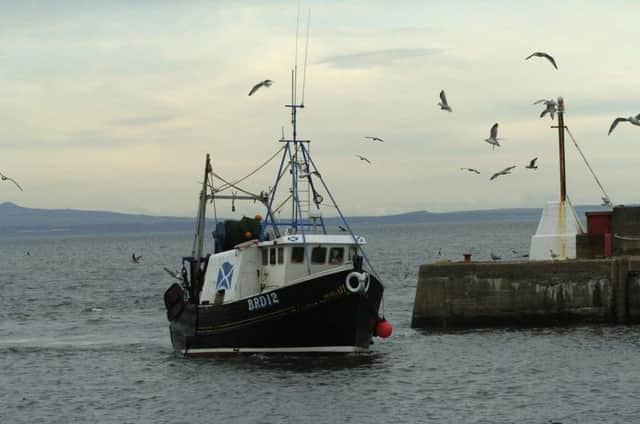Value of fishing in Scotland reaches record high


Fish landings in 2016 increased in value by 29 per cent to £563 million, according to official statistics published yesterday.
The increase was mainly driven by a 41 per cent increase in the value of landings for pelagic fish like herring and mackerel.
Advertisement
Hide AdAdvertisement
Hide AdBertie Armstong, chief executive of the Scottish Fishermen’s Federation, said the figures were “very encouraging”.
“This indicates the healthy state of Scotland’s main fishing stocks,” he said. “I would say we are now benefitting from sacrifices made by fishermen in the recent past.
“Prices are very buoyant at the moment.”
Provisional statistics published reveal the quantity of fish landed by Scottish registered vessels in 2016 was 453,300 tonnes with a value of £563 million - an increase of three per cent and 29 per cent respectively since 2015.
The number of active Scottish registered fishing vessels in 2016 was 2,038, an increase of one per cent from 2015. The number of fishermen employed on Scottish fishing vessels was 4,823, consistent with 2015.
Fisheries secretary Fergus Ewing said the sector played a “key role” in Scotland’s rural economy.
“These latest statistics show the value of Scottish catch is at a record high with Scotland’s fishing fleet and sea fisheries contributing £563 million in revenue to our economy,” he said.
“It supports jobs and businesses at sea but also in our coastal communities, and contributes significantly to Scotland’s world class food and drink success story.
“So it is encouraging to see increased landings of nephrops (prawns), shellfish and demersal fish like cod, haddock, whiting and monkfish.
Advertisement
Hide AdAdvertisement
Hide Ad“These positive figures reflect the hard work of all those involved with our sea fishing sector.”
Industry experts have previously warned the UK’s fisheries could be used as a bargaining chip as ministers negotiate the UK’s exit from the European Union.
Skippers hope to avoid a repeat of 1972, when the industry was widely considered to have been “sold down the river” to secure Britain’s entry to the then European Economic Community.
UK-registered boats landed 708,000 tonnes of seafood, worth £775 million into ports in the UK and abroad in 2015.
Scottish vessels accounted for 62 per cent of the quantity of landings by the UK fleet - more than double the English fleet.